UNDP and Kuwait Banking Association organize a workshop for the banking sector to enhance banks’ contributions to sustainable development
The Kuwait Banking Association stated that within the framework of the association’s and Kuwaiti banks’ keenness to promote sustainability and responsible banking practices with the aim of supporting economic development, the Kuwait Banking Association, in partnership with the United Nations Development Program in Kuwait, organized a workshop entitled “Introduction to Impact Measurement and Management”, with the aim of enhancing banks’ contributions to sustainable development by adopting frameworks and practices for measuring and managing impact (IMM).
In this regard, Prof. Yaqoub Al-Sayed Yousef Al-Rifaei, Secretary-General of the Kuwait Banking Association, stated that in line with the sustainable development goals within the New Kuwait Vision 2035, and within the framework of the Central Bank of Kuwait and Kuwaiti banks’ keenness to support sustainability and shift to a sustainable financing approach, Kuwaiti banks seek to increase financing to achieve environmental and social benefits, by providing sustainable financing to support projects in the fields of renewable energy, sustainable transportation, and environmentally friendly buildings, in addition to social financing directed to initiatives in the fields of healthcare, education, and many other fields. Banks also seek to link climate strategies with new business opportunities by focusing on innovation in banking products and services to confirm this trend.
Al-Rifaei pointed out that, in recognition of banks’ national responsibility towards the environment and society, the Kuwait Banking Association was the first to establish a new specialized committee within its committees aimed at enhancing environmental, social and corporate governance practices in the banking sector, to ensure that all banking sector units adhere to sustainability standards in their strategies and daily operations, and with the aim of driving sustainable growth in line with global best practices.
Al-Rifaei explained that establishing a sustainability committee in the banking sector represents an important step, as the committee’s strategic initiatives will contribute to enhancing the reputation of the banking sector, attracting investors interested in the fields of environment and sustainable finance, and enhancing long-term sustainability in the financial landscape in Kuwait.
For her part, Ms. Emma Morley, Resident Representative of the United Nations Development Program in Kuwait, said that the partnership between the United Nations Development Program in Kuwait and the Kuwait Banking Association will enhance the understanding of participants in the workshop sessions from the banking sector on how to measure and manage impact, and integrate it into business strategies, which will result in strengthening strategic partnerships across various sectors, and thus contribute to a sustainable and inclusive financial system in Kuwait.
Morley also indicated that the program aims to integrate impact measurement and management efforts with business strategies and the Sustainable Development Goals, which confirms the key role of the United Nations Development Program in Kuwait in embedding these global goals within the economic framework of Kuwait.
Morley explained that the United Nations Development Program, through the Sustainable Finance Center and other initiatives, is committed to supporting the private sector, including the financial industry, by integrating sustainability into key business strategies, which is part of broader efforts by the United Nations Development Program to promote a sustainable and inclusive financial system in Kuwait and beyond.
UNDP has been working in Kuwait for more than 30 years in cooperation with the government and civil society to achieve the country’s aspirations towards achieving sustainable human development.

![Unknown-1[44]](https://kba.com.kw/wp-content/uploads/2024/04/Unknown-144.jpeg)